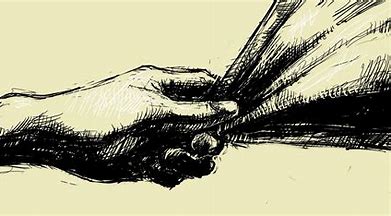Are you Feeling Unclean?
Rape has a way of creating a sense of inner filth. A deep sense of dirt that is hard to shift. Such abuse touches that private, intimate part of us in such a way that even though any outward scars may heal, the inward ones do not. No amount of physical cleansing will shift this dirt.
The Bible tells of another type of uncleanness. This is one people may struggle little with if they deny even its reality: sin. Before a truly holy God, we are ‘dirty’; it is part of our fallen nature. The Old Testament records the way people tried to symbolically cleanse themselves off this dirt by various rituals. However, no amount of self cleansing could do what was necessary to stand before God.
Only the blood of Christ, perfect in every sense, could be an acceptable sacrifice. His sacrifice makes real the promise that through faith in Him, we become perfectly clean before God. If you are a non-believer reading this you might think that the reality of our own uncleanness before God merely increases the emotional burden you might now be carrying. However, here is the promise: God is able to perfectly cleanse you so that when you die you may stand before Him confident, not in your own attempts to ‘clean up’, but in His ‘cleaning up’ of you, by giving you Christ to lean on.
The world may provide you with systems of self help, of therapy and so on. Only God can cleanse you of the dirt that keeps you from Him. God can also help you remove the dirt that another human has caused you to bear. Before Him, whatever has happened to you and however you feel, you are clean, you have inherent worth, and you have dignity.
Realising the uncleanness we are born with does not psychological disturb us: it sets us free.




